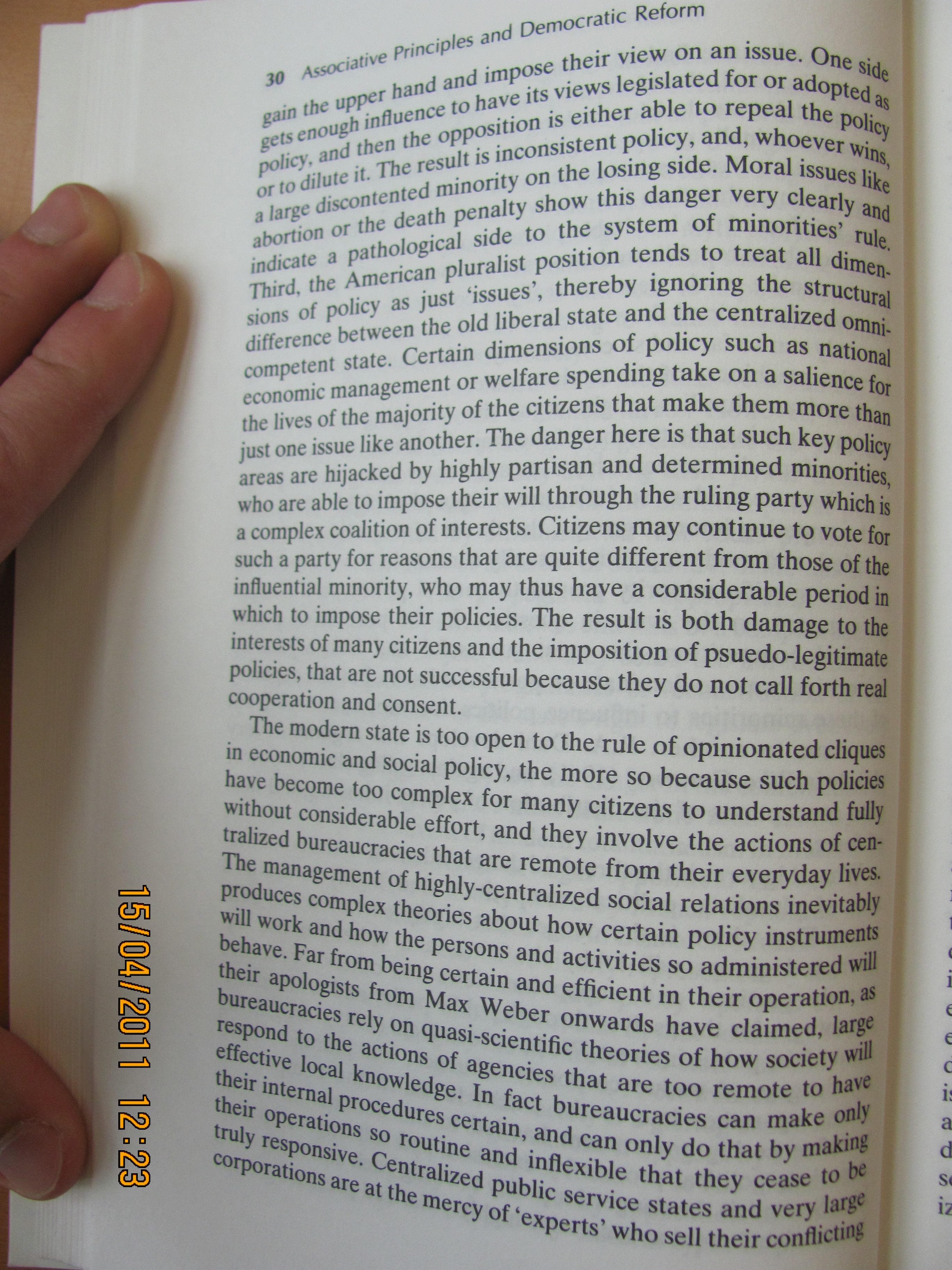IMG#18

30 Associative Principles and Democratic Reform
gain the upper hand and impose their view on an issue. One side gets enough influence to have its views legislated for or adopted as policy, and then the opposition is either able to repeal the policy or to dilute it. The result is inconsistent policy, and, whoever wins, a large discontented minority on the losing side. Morał issues like abortion or the death penalty show this danger very clearly and indicate a pathological side to the system of minorities’ rułe. Third, the American pluralist position tends to treat all dimen-sions of policy as just ‘issues’, thereby ignoring the structural difference between the old liberał State and the centralized omni-competent State. Certain dimensions of policy such as national economic management or welfare spending take on a salience for the lives of the majority of the citizens that make them morę than just one issue like another. The danger here is that such key policy areas are hijacked by highly partisan and determined minorities, who are able to impose their will through the ruling party whichis a complex coalition of interests. Citizens may continue to vote for such a party for reasons that are quite different from those of the influential minority, who may thus have a considerable period in which to impose their policies. The result is both damage to the interests of many citizens and the imposition of psuedo-legitimate policies, that are not successful because they do not cali forth reai cooperation and consent.
The modern State is too open to the rule of opinionated cliąues in economic and social policy, the morę so because such policies have become too complex for many citizens to understand fully without considerable effort, and they involve the actions of centralized bureaucracies that are remote from their everyday lives. The management of highly-centralized social relations inevitably produces complex theories about how certain policy instruments will work and how the persons and activities so administered will behave. Far from being certain and efficient in their operation, as their apologists from Max Weber onwards have claimed, large bureaucracies rely on quasi-scientific theories of how society w® I respond to the actions of agencies that are too remote to have effective local knowledge. In fact bureaucracies can make only their intemal procedures certain, and can only do that by making their operations so routine and inflexible that they cease to be truły responsive. Centralized public service States and very larg® corporations are at the mercy of ‘experts’ who sell their conflicting 1
Wyszukiwarka
Podobne podstrony:
IMG#10 22 Associative Principles and Democratic Reform public power and of the devolved associationa
IMG#14 26 Associative Principles and Democratic Reform democratic naturę of the ‘primary association
IMG#20 32 Associative Principles and Democratic Reform Laski in ‘The Problem of Administrative Areas
IMG#08 20 Associative Principles and Democratic Reform yoluntary associations in order to do so. Ass
88880 IMG#28 40 Associative Principles and Democratic Reform democracy as communication have the adv
82043 IMG#22 34 Associaftve Principles and Democratic Reform contradśction with centralized, bureauc
83038 IMG#16 28 Associative Principles and Democratic Reform a pleni tude of power and the right to
IMG#16 28 Associative Principles and Democratic Reform a pleni tude of power and the right to exerci
więcej podobnych podstron